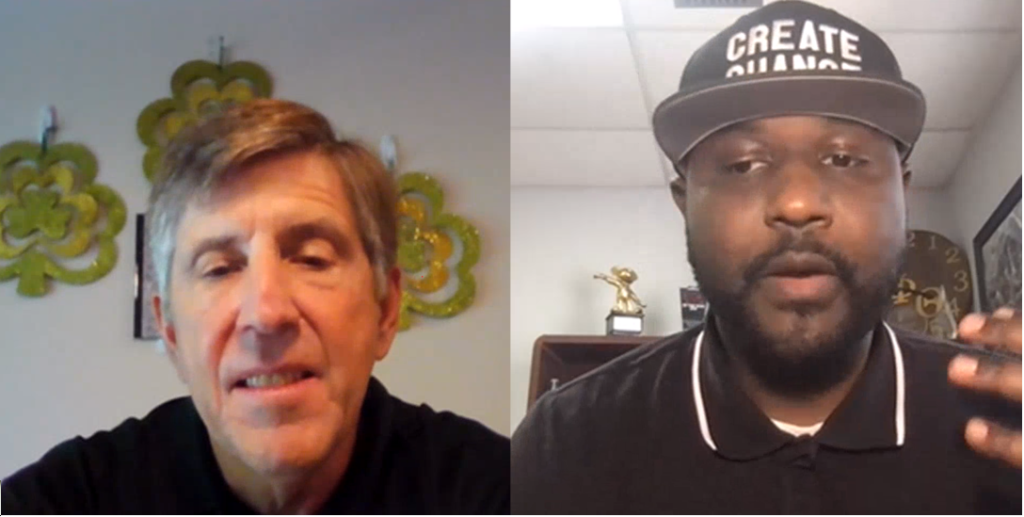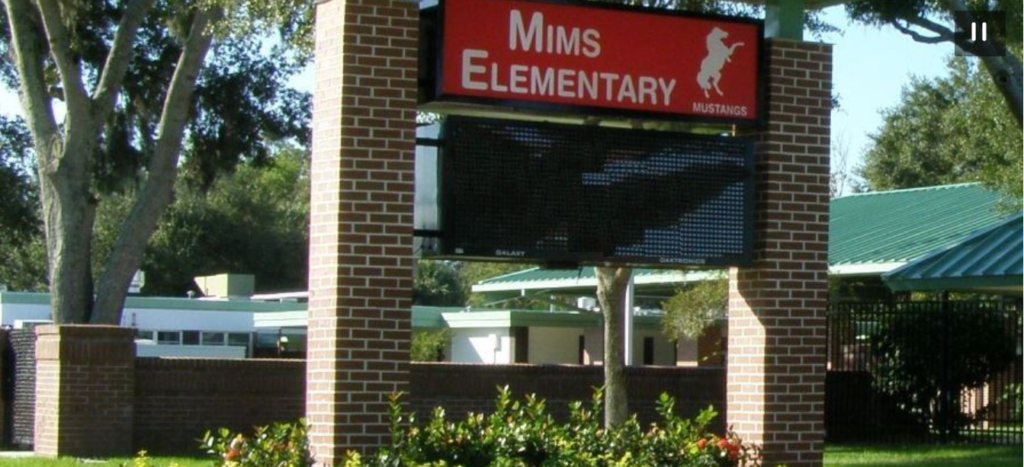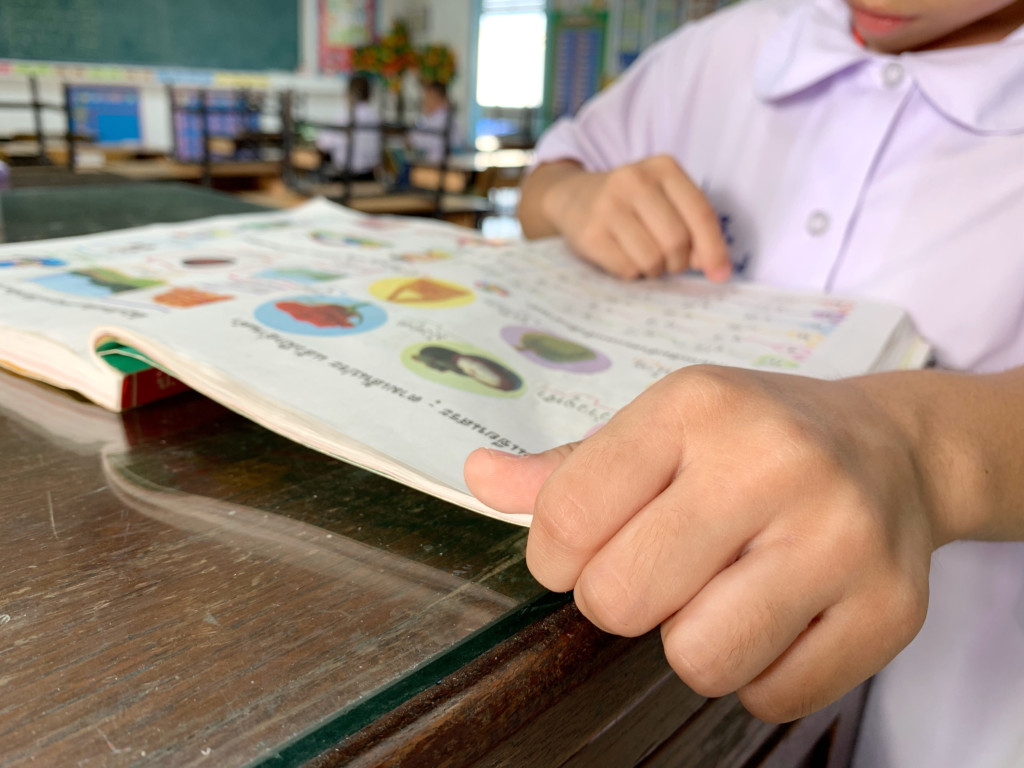 On this episode, Tuthill speaks with president and CEO of the Central Florida Urban League about the work the organization is doing to empower the Black community through what Gilzean refers to as the three E’s – education, employment and entrepreneurship.
On this episode, Tuthill speaks with president and CEO of the Central Florida Urban League about the work the organization is doing to empower the Black community through what Gilzean refers to as the three E’s – education, employment and entrepreneurship.
Gilzean, a former Pinellas County School Board member, has witnessed the devastating impacts of generational poverty. Both he and Tuthill believe giving parents flexibility and control over their education funding is critical to breaking that cycle.
The two discuss the Urban League’s plan to facilitate small learning pods known as micro-schools for the families it serves in the central Florida community and the potential for Senate Bill 48 to expand small learning environments to more families who presently can’t afford to leverage them, as well as the bill’s potential to drive creative, economic and entrepreneurial opportunity in the Black community.
"The bill does a lot of great things, but specifically for low-income Black folks, I think it will improve educational outcomes, the opportunity to employ individuals, and get people in the mindset of ‘I can do this, too; let me create a pod,’ so they can generate their own resources for the community."
EPISODE DETAILS:
· Gilzean’s background as a school board member and advocacy coordinator for Step Up For Students
· How the Urban League collaborated with Orange County Schools to facilitate the Reading Scholarship, an education savings account for public school students struggling with reading
· The Urban League’s plan to create micro-schools and school models to better serve students in juvenile detention
· How micro-schools can drive community development and be an economic engine to counteract generational poverty
LINKS MENTIONED
Micro-schools could be answer for low-income Black students
 Florida students who may have experienced learning loss due to COVID-19 got help recently from a pilot program made possible by a state scholarship aimed at helping public school students who struggle with reading.
Florida students who may have experienced learning loss due to COVID-19 got help recently from a pilot program made possible by a state scholarship aimed at helping public school students who struggle with reading.
The North Brevard NAACP, along with the Central Florida Urban League and Brevard Public Schools, partnered to launch a reading enrichment program powered by the state’s Reading Scholarship Account program at Mims Elementary, a Florida Space Coast school where at least 40% of students come from lower-income families.
The scholarship accounts, valued at $500 per student, are available for students in grades 3 through 5 who are enrolled in a Florida public school and scored below a Level 3 on the grade 3 or grade 4 statewide, standardized English Language Arts assessment in the prior school year.
Families can use the money for instructional materials, curriculum, tuition and fees for part-time tutoring services or specialized education programs designed to improve reading or literacy skills and fees for after-school programs designed to improve reading or literacy.
Step Up For Students, which hosts this blog, helps administer Reading Scholarship Accounts along with four other scholarships for Florida schoolchildren.
Students who participated in the pilot program already were behind before the pandemic forced school closures, according to Ruth Gary, a member of the North Brevard Education Committee and coordinator of the program.
Funded by a grant from the Central Florida Urban League, the students met daily with an instructor and teaching assistant at a local community center for focused, hands-on tutoring in reading and science.
With help from Brevard County Parks and Recreation, and personal protective equipment donated by the Harry T. and Harriet V. Moore Cultural Complex, the program also included tours of the Kennedy Space Center Visitor Complex and the American Space Museum in Titusville.
Timing of the program likely was fortuitous, as children in Florida and across the nation who already were prone to summer learning loss were predicted to fall even further behind due to COVID-related school campus closures.
Amid concerns the learning gap would only continue to worsen this fall, especially for children already at a disadvantage, Gary said the organizations would like to expand to a full-blown after-school program for K-5 students at up to five additional schools.
Brevard Public Schools spokeswoman Nicki Hensley said district officials have scheduled a meeting for early November with representatives from the Urban League and the North Brevard NAACP to discuss the plan.
 Florida has been a leading K-12 innovator for years, so it is no surprise it became the first state to offer education savings accounts (ESA) to children in public schools.
Florida has been a leading K-12 innovator for years, so it is no surprise it became the first state to offer education savings accounts (ESA) to children in public schools.
Launched in 2018 to 5,375 students, the Reading Scholarship provides students in third through fifth grades accounts worth up to $500 to pay for tutoring, afterschool and summer school reading programs, books and other services dedicated to improving literacy.
This year, the Florida Legislature appropriated $7.6 million to fund the scholarship program.
Students must be struggling learners, scoring a “1” or “2”, the two lowest scores, on the Florida Standards Assessment. Level 2 students are described as “below satisfactory” and likely needing substantial support for the next grade. Students scoring Level 1 are considered to have “inadequate” reading skill and highly likely to need substantial support. Students who are English language learners are given priority.
After they receive their children’s reading scores, parents apply through Step Up For Students, one of two approved non-profit scholarship administrators in Florida (and host of this blog). Once the Florida Department of Education ensures students are enrolled in public schools in eligible grades, parents are awarded a $500 scholarship to help improve the literacy of their child.
For now, parents are reimbursed for purchases within two to three weeks. But that system could change.
Florida’s other ESA program, the Gardiner Scholarship for students with special needs, functions in a similar method. However, Step Up developed a proprietary software program called “MyScholarShop,” allowing parents to directly purchase products and services through their ESA. To date, the parents of nearly 5,000 children have used MyScholarShop to make over 65,000 purchases totaling $19.2 million. MyScholarShop allows Gardiner parents to directly purchase thousands of pre-approved items. In addition to MyScholarShop, parents can use their education savings accounts to directly pay for services from over 9,000 approved vendors, tutors, and medical professionals, without having to wait for reimbursement.
This year 4,039 students have been found eligible on the Reading Scholarship, with 1,690 already funded and more applications on the way.
The Central Florida Urban League in Orlando is a leading proponent of the program, helping hundreds of students apply in the first two years. The chapter even developed and promoted a reading program after partnering with several Orange County public schools.
In the program’s first year, the League partnered with nine public schools to provide tutoring to more than 700 disadvantaged students. With the help of the reading scholarship and a $100,000 donation, hundreds of struggling fourth- and fifth-grade students received free tutoring services.
“It has been a godsend for parents who struggle and can’t afford tutoring for their children,” said Glen Gilzean, the League CEO. Gilzean says other Urban League chapters in Duval, Miami-Dade and Pinellas counties plan on developing their own partnerships with local public schools. Gilzean is the former vice president of family and community affairs at Step Up For Students, the non profit that administers the reading scholarship and hosts this blog.
Charter schools are getting involved, too.
Dayspring Academy may enroll about half of the current Pasco County reading scholarship students, says John Legg, a former state senator who was a primary sponsor of the Gardiner Scholarship and is the CFO of the charter school. Legg is currently a board member of Step Up For Students.
Dayspring offers an hour-long math and tutoring program that meets twice per week during the school year for students in second through fifth grade who score 1, 2 or 3 on the FSA. Dayspring has about 60 students participating in the afterschool program, with nearly 40 enrolled through the Reading Scholarship.
Before the Reading Scholarship was available, the charter school could afford to offer afterschool tutoring for only 30 minutes.
“We could not do this without the Reading Scholarship because the cost would be too great,” Legg said. The math portion of the program is supplemented through a separate grant, according to Legg.
As the program grows, more public schools are expected to participate. Staffers at several school districts, including Liberty, Columbia and Hillsborough counties, have expressed interest in the program.
“It’s a starting point,” says Gilzean, “but it really does make a difference.”
States wishing to emulate Florida don’t have to copy the program word for word. Since reimbursement programs are harder on low-income families, and the fact that many families use the scholarship to pay for tutoring, a program could function like a traditional voucher to be used at schools or tutoring centers. Eligibility doesn’t have to be limited to public school students or confined to just reading.
Such a program might be available for all students, including private school, charter school, homeschool and public school students, and be used to help pay for afterschool and summer school programs, tutoring for reading and math, to help students with disabilities receive speech, behavioral, or occupational therapy, or provide mentoring and job training for at-risk students and students with special needs.
Giving parents command of K-12 funding in this way may very well be the future of education.
Florida’s two separate ESA programs come the closest to that future, but no state has blended such a diverse array of options together into one program for all students. The race is on to see which state will be first.